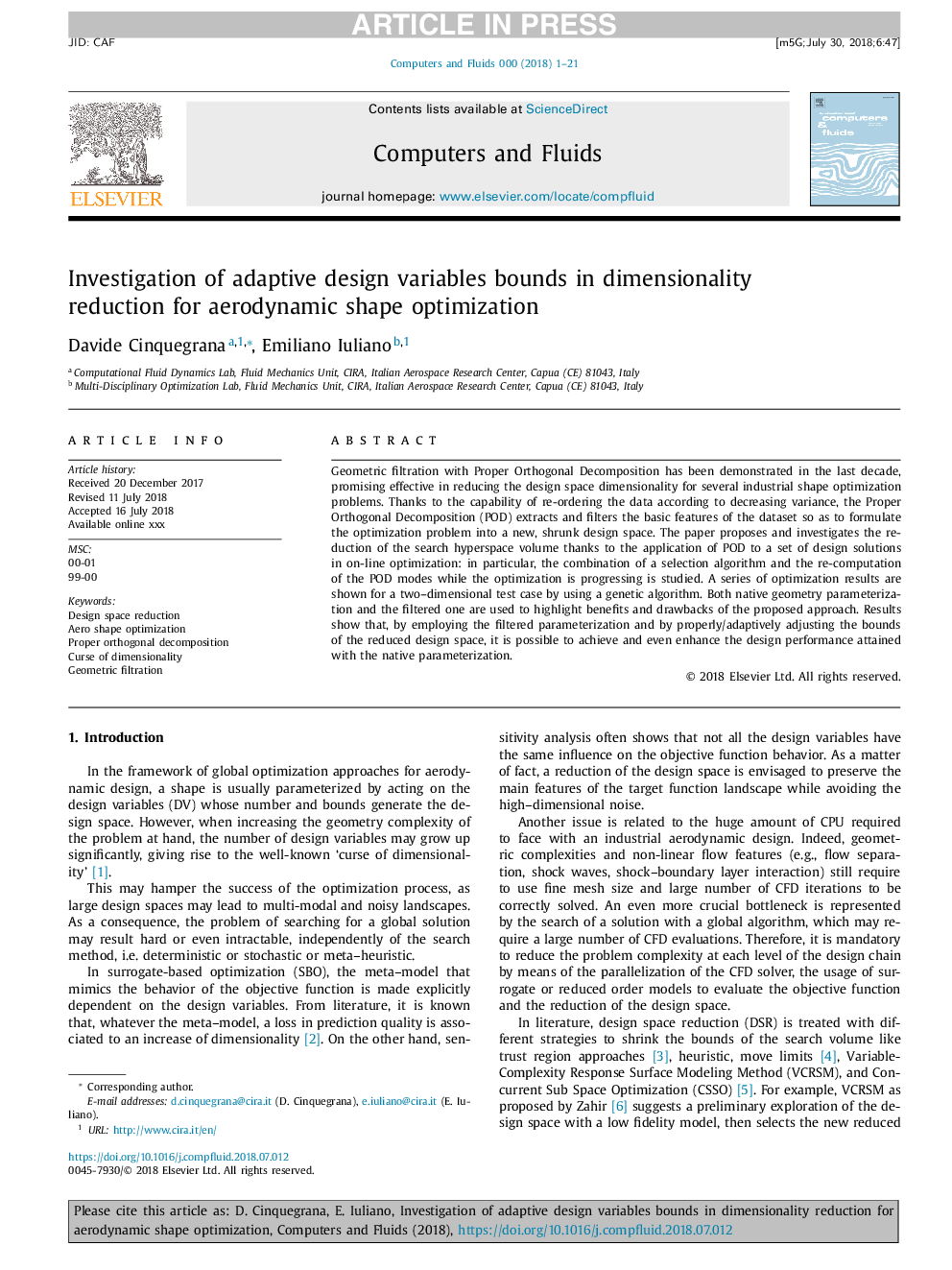| Article ID | Journal | Published Year | Pages | File Type |
|---|---|---|---|---|
| 11003777 | Computers & Fluids | 2018 | 21 Pages |
Abstract
Geometric filtration with Proper Orthogonal Decomposition has been demonstrated in the last decade, promising effective in reducing the design space dimensionality for several industrial shape optimization problems. Thanks to the capability of re-ordering the data according to decreasing variance, the Proper Orthogonal Decomposition (POD) extracts and filters the basic features of the dataset so as to formulate the optimization problem into a new, shrunk design space. The paper proposes and investigates the reduction of the search hyperspace volume thanks to the application of POD to a set of design solutions in on-line optimization: in particular, the combination of a selection algorithm and the re-computation of the POD modes while the optimization is progressing is studied. A series of optimization results are shown for a two-dimensional test case by using a genetic algorithm. Both native geometry parameterization and the filtered one are used to highlight benefits and drawbacks of the proposed approach. Results show that, by employing the filtered parameterization and by properly/adaptively adjusting the bounds of the reduced design space, it is possible to achieve and even enhance the design performance attained with the native parameterization.
Related Topics
Physical Sciences and Engineering
Engineering
Computational Mechanics
Authors
Davide Cinquegrana, Emiliano Iuliano,
